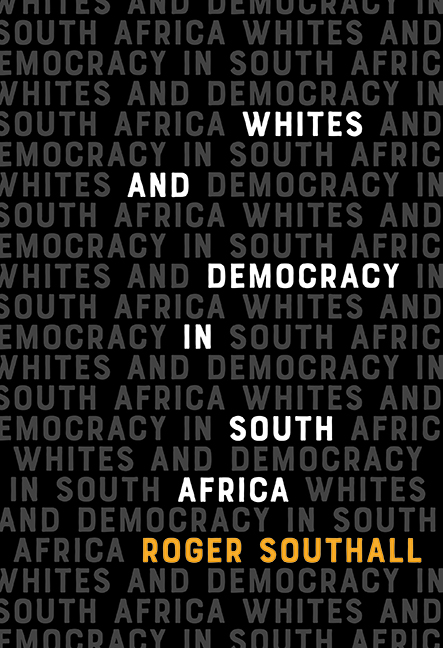5 - White Hopes, Fears and Fate after 1994
Published online by Cambridge University Press: 26 May 2022
Summary
The transition to democracy compelled South Africa's white minority to consider the costs, benefits and opportunities of a new political order. In the years just prior to the transition, white attitudes towards the prospect of black majority rule had remained strongly negative.
Once democracy had arrived, whites were aware that the protections offered by apartheid had gone forever. They were now confronted by the prospect of living in a democracy, and an extended period of ANC rule. How did they react? What were their feelings and responses? How did they act politically? Did they embrace democracy or merely accept it because they had to? Answers are teased out in the chapters that follow. Yet prior to embarking upon this exercise, it is necessary to provide overviews of five issues which were particularly germane to the shaping of white attitudes. These were, respectively, the guarantees of rights to property, schooling and language; the management of the economy; the ANC government's attempts to achieve racial redress; fear of crime; and, finally, whether whites would be able to maintain their standards of living.
The rights to property, schooling and language
Contemporary media reports confirm that many if not most whites were swept up in the general euphoria of the first democratic election on 28 April 1994. Photos show whites standing happily in the long queues that formed outside polling stations, often chatting excitedly to fellow ‘rainbow’ voters. Their participation – an estimated 86 per cent of eligible whites turned out to vote – effectively endorsed their acceptance of the negotiated settlement, however nervous they may have been about how it might work out. Even better news was that threats by the far right to boycott the election had come to very little. The Freedom Front (FF), the most right-wing party on offer, received only 14 per cent of the white vote nationally – less than half the right-wing vote in the 1992 whitesonly referendum. The overwhelming majority of whites fell in line behind an NP which under de Klerk had transformed itself into a self-proclaimed party of non-racialism and which, by capturing two-thirds of the votes of the white, Indian and Coloured communities, gave some credibility to its claim to being the most demographically representative party in the country.
- Type
- Chapter
- Information
- Whites and Democracy in South Africa , pp. 101 - 118Publisher: Boydell & BrewerPrint publication year: 2022

